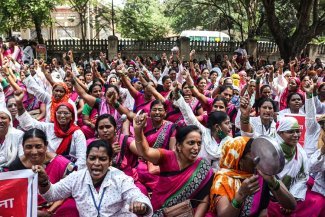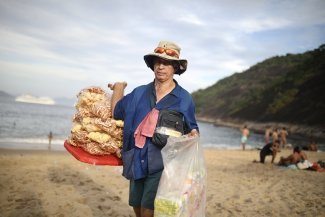On Wednesday 13 November, the Civil and Mercantile Chamber of the National Court of Justice (CNJ) upheld the ruling against oil company Chevron-Texaco for environmental damage caused to the Amazon region during its 26 years operating in Ecuador, following an appeal filed by the multinational to overturn a decision sentencing it to pay US$19 billion dollars in damages.
The plaintiffs’ lawyer, Pablo Fajardo, received the notification by email in Rome (Italy), where he had gone to speak about the Chevron case.
"This is a great step forward, legally, and demonstrates that Ecuador’s judiciary is, indeed, independent and transparent. There is a ruling that has condemned Chevron on three occasions for the damage caused to the Ecuadorian Amazon, but I must insist it’s a shame that its irresponsible conduct during this 20-year legal battle has not been punished," said Fajardo.
The lawyer was referring to the fact that the CNJ had reduced the damages payable to just over eight billion dollars, plus 10% in compliance with the Law on Environmental Management, by way of compensation to the Amazon Defence Front (FDA), leaving without effect the fine for punitive damages condemning Chevron to pay double for refusing to make a public apology to those affected, as ruled by the Provincial Court of Sucumbíos on 3 January 2012.
The plaintiffs have already initiated proceedings for the enforcement of the ruling in Brazil, Canada and Argentina.
The verdict states that "insofar as the punitive damages are not regulated under national law, the public apology does not apply and, consequently, nor does the sentence to pay the corresponding fine".
Fajardo estimated that the compensation should amount to US$9.5 billion.
During its 26 years operating in the provinces of Sucumbíos and Orellana, Texaco (which Chevron acquired in 2001) drilled 342 wells, 549 pits and had nine crude oil spills. It was supposed to ensure the remediation of 225 of these pits, but only 158 were cleaned up.
Plaintiffs pleased with CNJ decision
Luis Yanza, the spokesperson for the plaintiffs, said that he had not yet examined the complete 222-page document, but considered that although the verdict "was not a complete triumph, nor was it a defeat, as at least the amount payable for the reparation of the damages was upheld".
"The verdict has given us the endorsement to continue with the enforcement stage of the ruling in other jurisdictions outside of Ecuador," insisted Fajardo, recalling that proceedings are already underway in Canada, Brazil and Argentina, where Chevron holds part of its assets.
"It brings us satisfaction that with this 30-year battle, which seemed endless and in which many did not believe, we are now able to show the world that we can do things well in Ecuador and we have the dignity to defend the sovereignty and the human rights of our people," he added.
José Medardo Shingre, one of the thousands affected by the pollution, and whose testimony left UN delegates speechless in September, welcomed the news: "With this ruling in favour of the plaintiffs, justice is being done to ensure an end to the damage being inflicted on communities.
I invite Ecuador and people of good faith to create a social network to ensure that Chevron is brought to justice."
"We want this to set a precedent, to force companies to take great care when extracting natural resources.
We are not against extraction, but we want them to operate in good faith and not to play with human lives. I thank God for this ruling. But nothing will give us back the lives lost because of the pollution. Just days ago, a women whose surname was Lapo died of cancer," said Medardo.
According to the Venezuelan website Aporrea.org, at the beginning of November, Ecuador’s foreign minister Ricardo Patiño appealed to the international community whilst visiting the UGT trade union confederation’s headquarters in Madrid, calling on it not to leave Ecuador alone in its fight against the smear campaign being waged by Chevron.
"We need support from the international community, from our friends around the world, so as not to confront this alone," he said, adding that there are already around 20 support groups in Latin America and Europe.
This article was originally published on the website http://www.telegrafo.com.ec/









